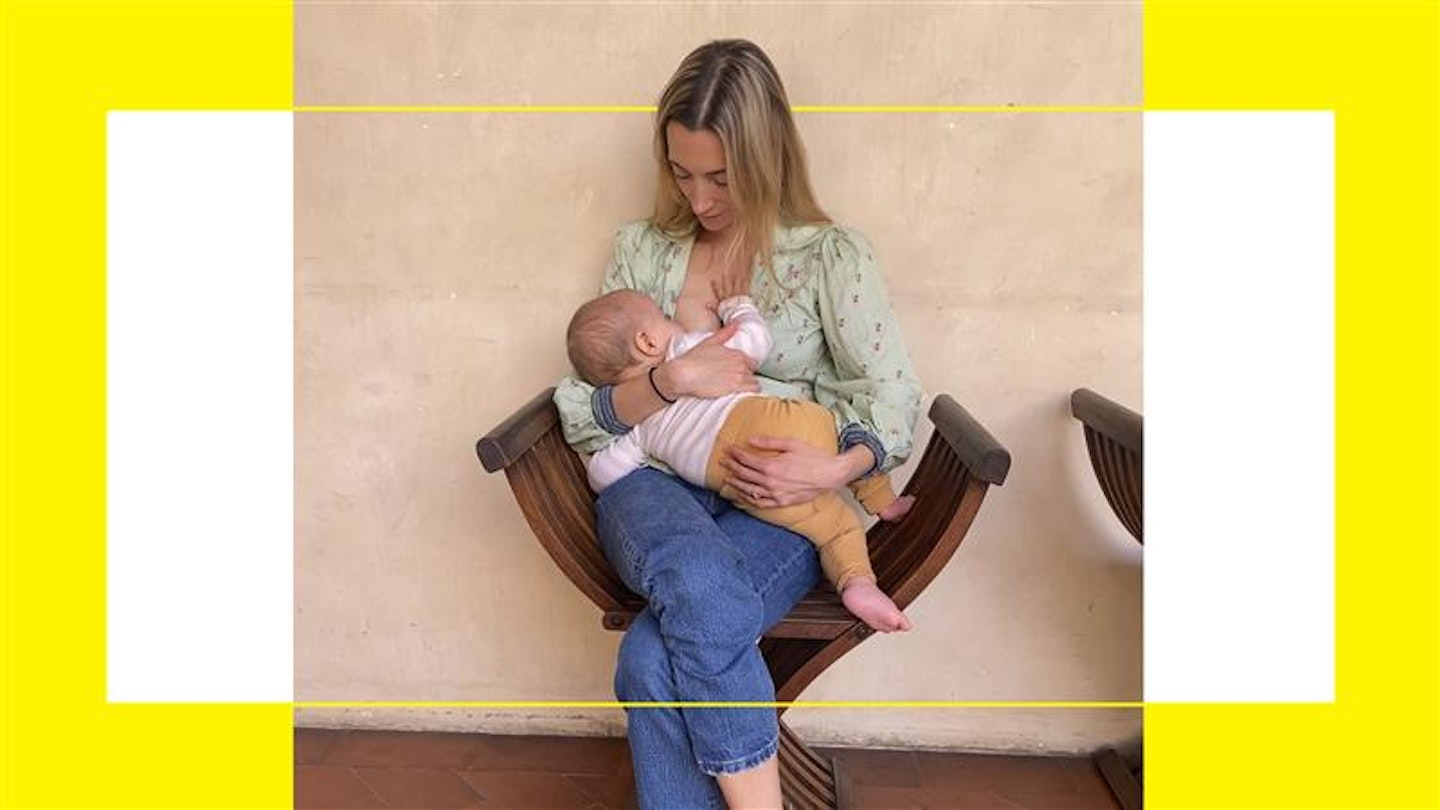A couple of months ago I started a new bedtime routine with my toddler: bath, book, tuck him in with his bison teddy under his bison blanket (he’s got a thing for bisons). I’d creep out of his room, hope for the best, then hear the inevitable little calls of “Amulk!” from his cot.
“Amulk” meant breastmilk, which in my head translated into a new kind of heartbreak. I’d started weaning off breastfeeding and my mood spiralled with it.
Breastfeeding was something that came quite easily to me after a difficult few years – I know not every mother wants or gets that privilege and I felt lucky. I enjoyed the quiet moments holding my child who otherwise squirms out of any kind of hug.
Then, for fertility reasons (which is a whole other story), it was suggested I try weaning him off breastfeeding, which after two years, I wasn’t opposed to. There would be perks! I would have more energy and be able to go out for dinner, or anywhere, for more than a couple of hours without dashing home to breastfeed. I began by cutting out sporadic feeds and then the longer session before his midday nap. That’s when the fog came in.
Almost immediately after dropping that lunchtime feed, my feelings became messy. I felt sadness as if I was living in the wake of terrible news. I’ve never been a tearful person, but suddenly small, irrational things were making me cry, like the traffic jam of Hot Wheels cars my son lined up on the windowsill. It seemed so sweet and innocent, and too much to bear.
Sometimes I’d wake in the night and check on him, just to make sure he was still there. I became rattled with self-doubt and tirelessly asked my husband for reassurance: was I letting our son down? Should I stop weaning him off breastfeeding? Does he still love me? Am I even loveable? As for the freedom weaning would award, instead I felt a rush of pressure to put something meaningful in its place. I got my son a red bike and thought we could bond together doing that, but he’s scared of it and so it sits in the corner of our garage.
When you’re in the midst of something like this it can be hard to find reason, but a part of me knew these feelings were triggered by something out of my control. I confided in a friend, “I feel biologically depressed.” It felt like all the things I’d read about postpartum depression, yet it was two years after the birth of my son. But when I replaced ‘partum’ with ‘weaning’ and typed it into Google, I was surprised to see I wasn’t alone.
In my research, I learnt that hormones could be at the core of my mood change and spoke to Dr Justice Reilly, who practices breastfeeding medicine and is an IBCLC-approved lactation consultant. “When breastfeeding is going well, the mother has frequent pulses of hormones oxytocin and prolactin that improve her mood and support bonding with her baby,” she explained. The level of these ‘feel-good’ hormones fall with weaning, which can affect your mood as your body tries to readapt and some women are more sensitive to it than others.
As for the profound sense of loss I was feeling, that could also be rooted in biology. “Breastfeeding is part of our evolution as mammals," she told me. "When we abruptly wean, it can feel as though we tell the body that child is no longer there. It can very much feel like a grief reaction."
As I opened up about my experience it became clear I’m far from alone. Almost every mother I’ve spoken to about giving up breastfeeding has experienced some impact on their wellbeing. Whether that's, ‘I feel so tired’ or, ‘I sobbed for two days straight.'
Joanna Wolfarth, author of MILK: An Intimate History of Breastfeeding, says she felt “panic” when her son started weaning himself. “I experienced feelings of grief and loss, which felt quite lonely at times. Most people seemed to imagine I'd be utterly relieved.”
The narrative that we should only be celebrating the end of breastfeeding may be bound, in part, to the lack of awareness of post-weaning depression. Dr. Verinder Sharma, Professor of Psychiatry and Obstetrics & Gynecology at the University of Western Ontario, is one of few who have studied the issue, and says, “This is a major issue because women are not routinely screened for depression during or after the weaning of breastfeeding. And there are no research studies to guide treatment choices.”
Perhaps by writing, reading, and sharing our experiences we can help change that.
Thankfully for many women, the emotional impact of weaning from breastfeeding is temporary. Over the past couple of weeks, my erratic feelings have softened. I still breastfeed my son in the morning but not at night, where the calls of “Amulk” have mostly transitioned to, “Bye mama”. Perhaps I will always feel sad that this season of motherhood has ended, but I remind myself there is a lot of his childhood to look forward to - starting with that red bike in the garage.
For further support, talk to your GP, lactation consultant, or health visitor
